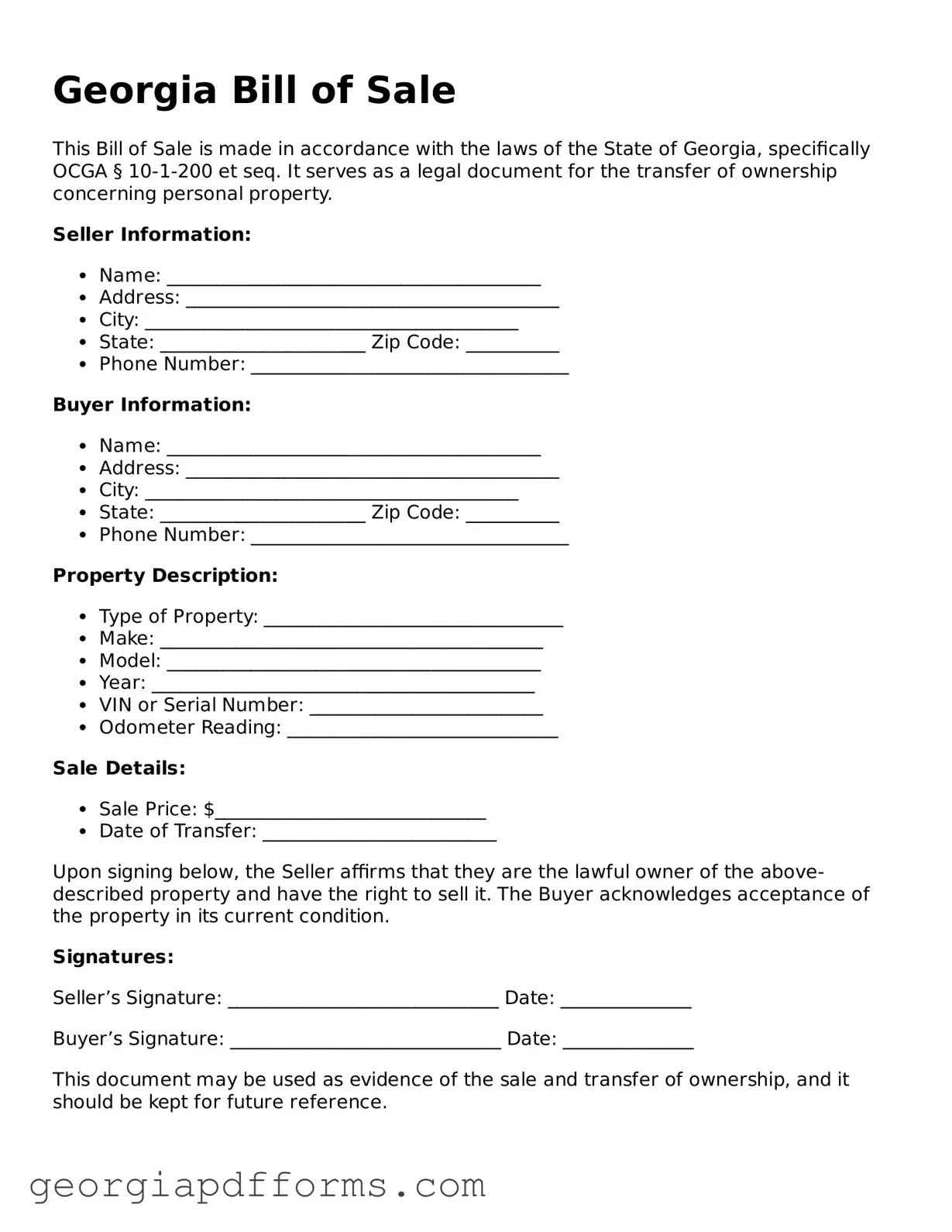What is a Georgia Bill of Sale form?
A Georgia Bill of Sale is a legal document that records the transfer of ownership of personal property from one person to another. This form serves as proof of the transaction and outlines essential details such as the buyer and seller's information, a description of the item being sold, and the sale price. It is commonly used for vehicles, boats, and other significant assets.
Is a Bill of Sale required in Georgia?
While a Bill of Sale is not legally required for every transaction in Georgia, it is highly recommended. Having a Bill of Sale provides a clear record of the sale, which can be beneficial for both the buyer and seller. For vehicle transactions, it is often required for registering the vehicle in the new owner's name.
What information should be included in a Georgia Bill of Sale?
A comprehensive Georgia Bill of Sale should include the following information: the names and addresses of both the buyer and seller, a detailed description of the item being sold (including make, model, year, and VIN for vehicles), the sale price, the date of the transaction, and any terms or conditions of the sale. Including a witness signature can also add an extra layer of protection.
Can I create my own Bill of Sale in Georgia?
Yes, you can create your own Bill of Sale in Georgia. There are templates available online that can guide you through the process. However, it's crucial to ensure that all necessary information is included and that the document complies with Georgia state laws. Alternatively, you can also purchase a pre-made form from a legal stationery store.
Do I need to have the Bill of Sale notarized?
In Georgia, notarization of a Bill of Sale is not required for most transactions. However, having it notarized can provide additional security and may be beneficial if disputes arise in the future. It's a good practice to have a witness present during the signing to further validate the transaction.
What should I do with the Bill of Sale after the transaction?
After the transaction is complete, both the buyer and seller should keep a copy of the Bill of Sale for their records. The buyer will need it for vehicle registration or for any future proof of ownership. The seller should retain it in case of any disputes or questions about the sale.
Can a Bill of Sale be used for different types of property?
Yes, a Bill of Sale can be used for various types of personal property, not just vehicles. It is commonly used for boats, trailers, furniture, electronics, and even livestock. The key is to ensure that the document accurately describes the item being sold and includes all necessary details.
What if there are issues after the sale?
If issues arise after the sale, such as disputes over the condition of the item or payment, the Bill of Sale can serve as a vital piece of evidence. It clearly outlines the terms of the transaction and can help resolve misunderstandings. If necessary, consulting with a legal professional may be advisable to address any disputes effectively.

